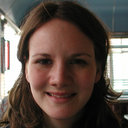Chairs: Sándor Darányi (University of Borås, Sweden), Laura Hollink (Centrum Wiskunde & Informatica, The Netherlands), Albert Meroño Peñuela (Vrije Universiteit Amsterdam, The Netherlands), Efstratios Kontopoulos (Center for Research & Technology Hellas, Greece)
PROGRAM
09.00-09.05 : Workshop WelcomeKEYNOTES
 Javier Fernández
Javier FernándezABOUT THE WORKSHOP
The continuous growth of the Linked Open Data (LOD) cloud is extending to various new domains. In many of these, facts change continuously: political landscapes evolve, medical discoveries lead to new cures, artists form new collaborations. In terms of knowledge representation, we observe that instances change their roles, new relations appear, old ones become invalid, and classes change both their definition and member-instances.
The evolution of LOD poses concrete new challenges to stakeholders: data publishers need to detect changes in the real world and capture them in their datasets; users and applications need automated tools to adapt querying over diachronic datasets; knowledge engineers want to understand modelling practices behind ontology changes; linguists study drift in the meaning of words. As a continuation of last year’s successful Drift-a-LOD, this workshop seeks to form a community of researchers and practitioners working on detecting, representing and managing concept drift in and for LOD.
Drift-a-LOD’17 will bring together different communities that define, identify and manage the dynamics of concepts in their knowledge bases using various domain-specific methods (statistical inference, symbolic reasoning, natural language processing, etc.), leveraging the LOD cloud as a data source or as a result publishing platform.
TOPICS
Topics of interest include, but are not restricted to:
- detecting and predicting concept drift (using any method, incl. reasoning, data mining, word embeddings, NLP)
- representation of concept drift
- reasoning, querying, machine learning in the presence of evolving knowledge and drifting concepts
- theoretical explanations of drift dynamics
- visualization and presentation of evolving knowledge
- ontology evolution and concept drift
- empirical studies of how concepts drift
- evaluation of concept drift detection methods
- applications working in the presence of concept drift
- frameworks addressing concept identity over time
IMPORTANT DATES
July 4, 2017: deadline to submit papers
July 11, 2017: extended deadline to submit papers
August 7, 2017: notifications to authors
August 14, 2017: camera ready versions
September 11, 2017: workshop
SUBMISSION GUIDELINES
We invite full papers and short papers. Contributions should follow the ACM ICPS guidelines for formatting and must not exceed 8 pages in length for full papers and 4 pages for short papers, including references and optional appendices. The layout templates can be found here: http://www.acm.org/sigs/publications/proceedings-templates. Papers should be submitted through the EasyChair submission system at https://easychair.org/conferences/?conf=driftalod2017
Contributions may be accepted as either long of short presentations depending on quality, novelty, and potential to stimulate a discussion at the workshop. Accepted contributions will be published on the CEUR-WS website (or equivalent).
At least one author needs to register for the workshop. Day passes for the workshop are available at 40 euro (excl. VAT).
ORGANISING COMMITTEE
- Sándor Darányi, University of Borås, Sweden
- Laura Hollink, Centrum Wiskunde & Informatica, The Netherlands
- Albert Meroño Peñuela, Vrije Universiteit Amsterdam, The Netherlands
- Efstratios Kontopoulos, Center for Research & Technology Hellas, Greece
PROGRAM COMMITTEE
- Astrid van Aggelen, Centrum Wiskunde & Informatica, NL
- Antonis Bikakis, University College London, UK
- Irini Fundulaki, Foundation for Research and Technology - Hellas (FORTH), GR
- Tomi Kauppinen, Aalto University, FI
- Nikolaos Lagos, Xerox Research Centre Europe
- George Meditskos, Center for Research & Technology Hellas (CERTH), GR
- Carlo Meghini, Consiglio Nazionale delle Ricerche (CNR), IT
- Francesco Osborne, Knowledge Media Institute, UK
- Thanos Stavropoulos, Center for Research & Technology Hellas (CERTH), GR
- Jannik Stroetgen, Max-Planck-Institut für Informatik, DE
- Ilaria Tiddi, Knowledge Media Institute, UK
- ...
- To be extended... (let us know if you would like to be a member of the PC!)

 Antske Fokkens
Antske Fokkens